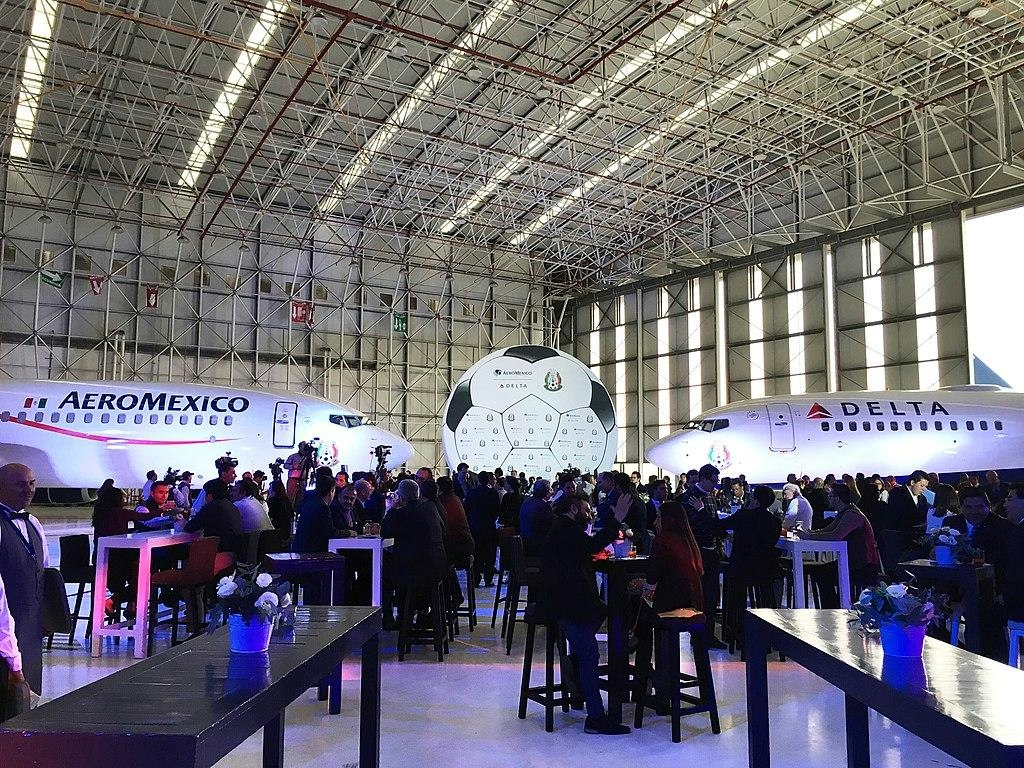أيروجيني — مساعدك الذكي للطيران.
الرائج الآن
Categories
US DOJ Supports Revoking Delta-Aeroméxico Partnership

US Department of Justice Supports Revocation of Delta-Aeroméxico Antitrust Immunity
DOJ Endorses DOT Proposal Amid Competition Concerns
The U.S. Department of Justice (DOJ) has formally backed the Department of Transportation’s (DOT) proposal to revoke antitrust immunity granted to the joint venture between Delta Air Lines and Aeroméxico. The DOJ’s position centers on concerns that the partnership diminishes competition within the U.S.-Mexico aviation market, potentially harming consumers and the broader industry.
In its recent filing, the DOJ underscored that antitrust immunity should be reserved for exceptional circumstances where clear public benefits are evident and competition remains robust. The department emphasized the critical role of competition in the airline sector, noting that it fosters lower prices, improved service quality, and a wider array of consumer options.
Background: Open Skies Dispute and Market Access Issues
This development follows the DOT’s announcement last month regarding potential punitive measures against Mexico for alleged violations of the 2015 U.S.-Mexico Air Transport Agreement, commonly known as the open skies agreement. The DOT accused the Mexican government of distorting the aviation market by imposing operational restrictions at Mexico City International Airport. These constraints compelled U.S. cargo carriers to shift operations to the more remote Felipe Ángeles International Airport, thereby undermining competitive conditions and restricting market access for certain airlines.
The DOT has warned that continued non-compliance by Mexico could lead to restrictions on Mexican carriers’ access to the U.S. market and the possible termination of the Delta-Aeroméxico joint venture. Such actions would significantly alter the competitive landscape, potentially limiting market access for the two airlines while creating opportunities for rival carriers to expand their operations, adjust flight schedules, and modify pricing strategies.
The DOJ echoed these concerns, stressing that maintaining competitive open market access is essential to offset the potential reduction in competition that might arise from granting antitrust immunity to an international airline alliance. The department expressed support for the DOT’s tentative decision not to renew the joint cooperation agreement (JCA) between Delta and Aeroméxico.
Responses from Delta and Aeroméxico
In response to the DOT’s proposal, Delta Air Lines defended the joint venture as “unquestionably proconsumer, procompetitive, and pro-American.” The airline highlighted the partnership’s economic contributions, including the creation of nearly 4,000 jobs, an addition of over $310 million to the U.S. GDP, and more than $200 million in annual tourism spending. Delta cautioned that dismantling the agreement could result in the cancellation of up to two dozen routes and the substitution of larger aircraft with smaller ones on many others, outcomes that would advantage competitors at the expense of consumers and employees.
Delta urged the DOT to direct any punitive measures toward the Mexican government rather than the binational business alliance. The airline also praised the DOT’s use of regulatory tools such as Part 213 and Part 212, which impose additional filing and authorization requirements on Mexican carriers operating in the U.S., encouraging the department to leverage these mechanisms to address policy concerns before taking action against the joint venture.
Aeroméxico has yet to issue a public statement regarding the proposed revocation. The situation remains dynamic as regulatory decisions and market responses continue to unfold.

Emirates Unveils Cabin Design for New Boeing 777X

Eighteen Years On, the Airbus A380 Remains Central to a $34 Billion Airline

How a boom in luxury airline seats is slowing down jet deliveries

Navitaire Outage Attributed to Planned Maintenance

DigiYatra Debuts Outside Aviation at India AI Impact Summit

Vietnam Orders Strengthen Boeing’s Commercial Outlook

Airbus Signals Uncertainty Over Future A400M Orders

JobsOhio Awards $2 Million Grant to Hartzell Propeller for Innovation Center

Collins Aerospace Tests Sidekick Autonomy Software on YFQ-42A for U.S. Air Force CCA Program

How the Airbus A350-1000 Compares to the Boeing 777
